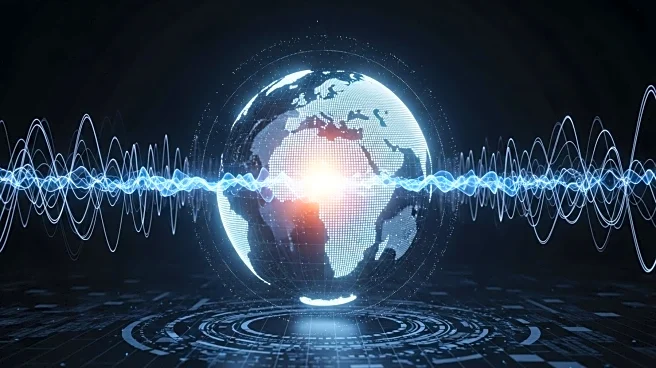What's Happening?
European Commission President Ursula von der Leyen has urged EU member states to impose new sanctions on Russia's liquefied natural gas (LNG) exports, its shadow fleet of aging oil tankers, and major energy companies. The proposed sanctions are part of the EU's response to Russia's ongoing war in Ukraine. Von der Leyen emphasized the need to 'turn off the tap' on Russian LNG to pressure Russia into negotiations. The EU has already implemented 18 packages of sanctions, targeting over 2,500 entities, including banks, ministries, and energy companies. The new sanctions aim to further restrict Russia's energy revenue, which is crucial for its economy.
Why It's Important?
The proposed sanctions are crucial as they aim to weaken Russia's economic foundation, which supports its military activities. Energy revenue is a key component of Russia's economy, and reducing it could limit Russia's ability to sustain its war efforts. The sanctions also reflect the EU's commitment to supporting Ukraine and maintaining pressure on Russia. If implemented, these measures could lead to significant changes in global energy markets, affecting countries and companies involved in trading Russian oil and gas. The sanctions could also influence diplomatic relations between the EU and Russia, potentially leading to further geopolitical tensions.
What's Next?
The proposed sanctions require approval from all 27 EU member states before they can be enacted. Von der Leyen has called for swift endorsement to maximize their impact. If approved, the sanctions could lead to increased economic isolation of Russia and potentially force it to reconsider its actions in Ukraine. The EU's alignment with international partners suggests a coordinated effort to address the situation. The impact on global energy markets and diplomatic relations will be closely monitored as the sanctions progress.










